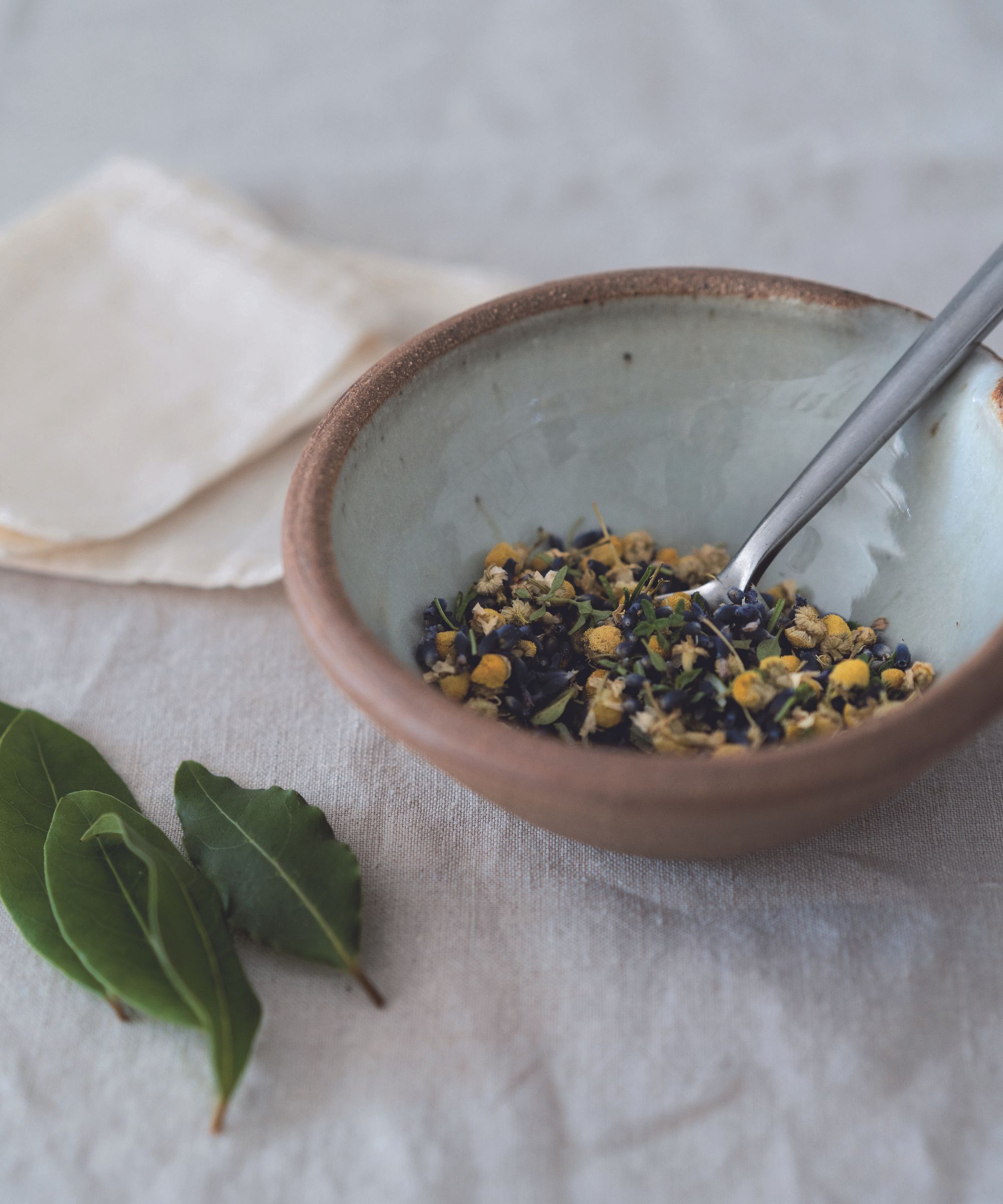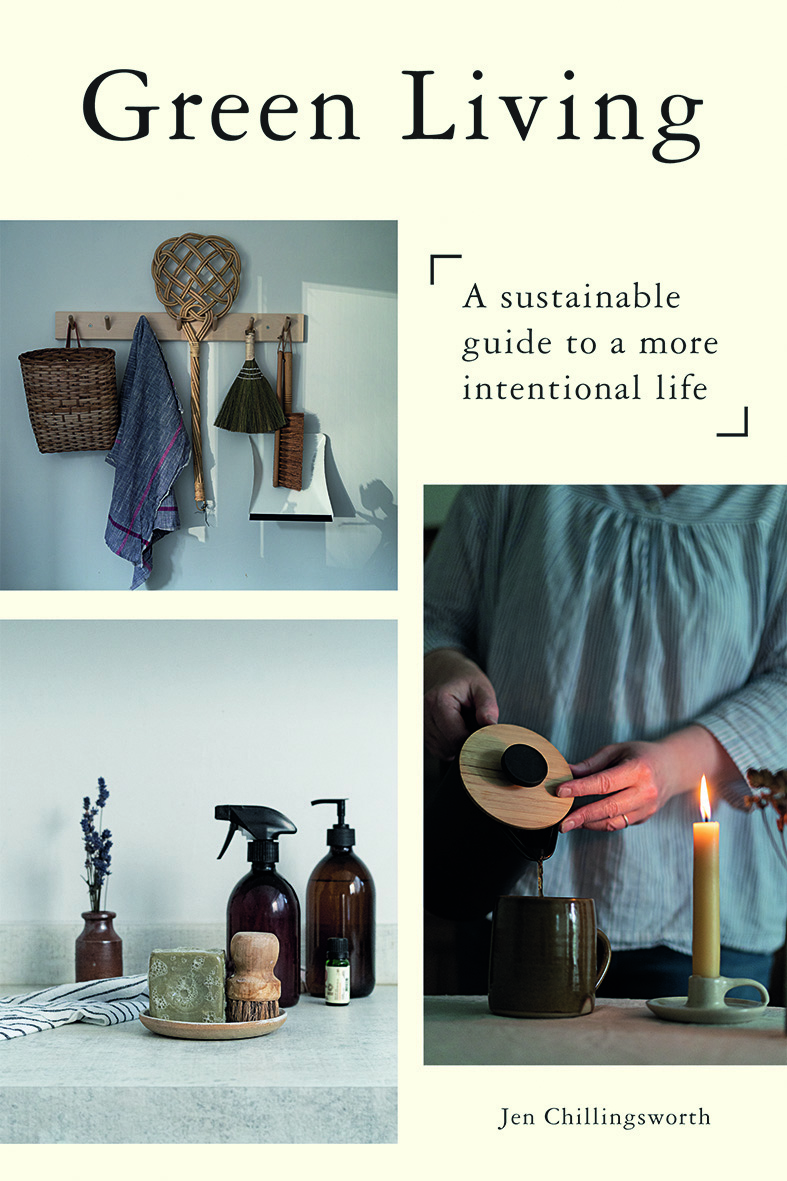Homemade moth repellent – get rid of moths, naturally
You can make your own moth repellent using herbs and essential oils. It's easy to do and more sustainable than products sold in-store


Design expertise in your inbox – from inspiring decorating ideas and beautiful celebrity homes to practical gardening advice and shopping round-ups.
You are now subscribed
Your newsletter sign-up was successful
Want to add more newsletters?

Twice a week
Homes&Gardens
The ultimate interior design resource from the world's leading experts - discover inspiring decorating ideas, color scheming know-how, garden inspiration and shopping expertise.

Once a week
In The Loop from Next In Design
Members of the Next in Design Circle will receive In the Loop, our weekly email filled with trade news, names to know and spotlight moments. Together we’re building a brighter design future.

Twice a week
Cucina
Whether you’re passionate about hosting exquisite dinners, experimenting with culinary trends, or perfecting your kitchen's design with timeless elegance and innovative functionality, this newsletter is here to inspire
We love the idea of homemade moth repellent – not just because the sachets look and smell so beautiful, but because they can be created so easily and in a far more environmentally-friendly way than store-bought ones can. And, they can help you get rid of moths naturally.
If you are into homemade bug spray, you will want to discover how to make this recipe by author Jen Chillingsworth.
'One of the easiest ways to prevent moths from taking up residence in your closet is to make your own repellent bags,' says Jen. 'Moths detest the aromas of strong herbs like lavender, rosemary, bay and thyme. You could gather bunches of these herbs from your garden, hang them in a dark place for some weeks to dry out and then make up these sachets to put in your wardrobe, cupboards and drawers.'
This homemade moth repellent recipe makes four to six sachets.

Jen Chillingsworth is the author of Green Living: A Sustainable Guide to a More Intentional Life. Green Living is follow up to her best-selling book Live Green. Her second book is a practical guide to living life more thoughtfully, and includes a collection of changes you can make to your home and lifestyle over the course of a year, from making your own cleaning products to giving up plastic.
Homemade moth repellent – an easy step-by-step

Many of the ingredients for these non-toxic mothball alternatives may already be in your pantry. You may even be able to gather many of the ingredients from your own herb garden ideas. 'If you don’t have any herbs in the garden, you can easily find dried ones online or ask a neighbour for some from their garden,' says Jen.
You will need:
- 1 large bunch of dried lavender stems
- 1 large bunch of dried thyme stems
- 1 large bunch of dried rosemary
- 1 large bunch of dried chamomile (Ed: Amazon sells a range of dried aromatic herbs)
- 1 bowl and spoon
- Reusable organic cotton bags (Ed: Amazon sells Organic Cotton Produce Bags that are reusable and biodegradable)
- 4-6 dried bay leaves
- Lavender essential oil (optional) (Ed: This is Amazon's top selling lavender oil)
1. Gather and combine the herbs
Strip the flowers from the dried lavender, chamomile and the leaves from the thyme stems and put them in the bowl. Strip the needles from the rosemary sprigs and add them to the bowl. Leave the bay leaf for now. Mix well.
Design expertise in your inbox – from inspiring decorating ideas and beautiful celebrity homes to practical gardening advice and shopping round-ups.
2. Bag the mixture
Scoop the mix into the reusable bags and add one bay leaf to each bag.
3. Add the essential oil
Add a few drops of lavender essential oil, if using.
What smells keep moths away?
Moths are repelled by the smell of aromatic herbs, including lavender, thyme, rosemary, chamomile, bay, cloves and mint, all of which can be added to cotton bags to keep them away from clothes. Like mosquito repellent plants, these herbs' strong scents are too overpowering for them.
What keeps moths away naturally?
Homemade moth repellent will keep moths away naturally. Follow our recipe above by combining aromatic dried herbs, such as lavender, thyme, rosemary, chamomile and bay, and adding a touch of lavender oil before putting them in cloth bags that can be placed in drawers and closets.

Lucy Searle has written about interiors, property and gardens since 1990, working her way around the interiors departments of women's magazines before switching to interiors-only titles in the mid-nineties. She was Associate Editor on Ideal Home, and Launch Editor of 4Homes magazine, before moving into digital in 2007, launching Channel 4's flagship website, Channel4.com/4homes. In 2018, Lucy took on the role of Global Editor in Chief for Realhomes.com, taking the site from a small magazine add-on to a global success. She was asked to repeat that success at Homes & Gardens, where she also took on the editorship of the magazine. Today, Lucy works as Content Director across Homes & Gardens, Woman & Home, Ideal Home and Real Homes.